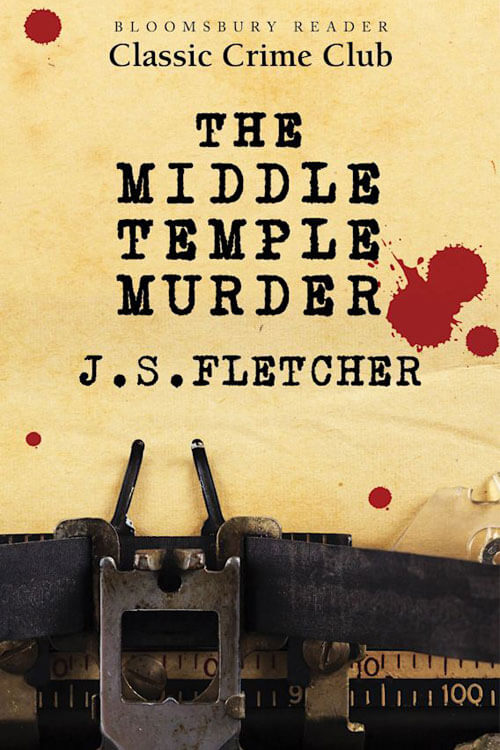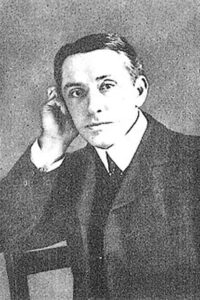
The Middle Temple Murder
“Well, he seemed taken aback, sir. He jumped. Then he stared at the man. Then they shook hands. And then, after they’d spoken a few words together, they walked off, talking. And, of course, I never saw any more of them. But when I saw your paper this morning, sir, with that picture in it, I said, ‘That’s the man I sat next to in that hall at the House of Commons!’ Oh, there’s no doubt of it, sir!”
“And supposing you saw a photograph of the tall gentleman with the grey beard?” suggested Spargo. “Could you recognize him from that?”
“Make no doubt of it, sir,” answered Mr. Webster. “I observed him particular.”
Spargo rose and went to a cabinet. He took a thick volume from it, the leaves of which he turned over for several minutes.
“Come here, if you please, Mr. Webster,” he said.
The farmer went across the room.
Read or download Book
J. S. Fletcher
Joseph Smith Fletcher (7 February 1863 – 30 January 1935) was an English journalist and author. He wrote more than 230 books on various subjects, both fiction and non-fiction and was one of the most prolific English writers of detective fiction.
Biography.
Fletcher was born in Halifax, West Yorkshire, the son of a clergyman. His father died when he was eight months old, after which his grandmother raised him on a farm in Darrington, near Pontefract. He was educated at Silcoates School in Wakefield, and after some study of law, he became a journalist.
Writing career
At age 20, Fletcher began working in journalism as a sub-editor in London. He returned to his native Yorkshire, where he worked first on the Leeds Mercury using the pseudonym A Son of the Soil and then as a special correspondent for the Yorkshire Post covering Edward VII’s coronation in 1902.
Fletcher’s first books published were poetry. He then moved on to write numerous works of historical fiction and history, many dealing with Yorkshire, which led to his selection as a fellow of the Royal Historical Society.
Michael Sadleir stated that Fletcher’s historical novel, When Charles I Was King (1892), was his best work. Fletcher wrote several novels about rural life imitating Richard Jefferies, beginning with The Wonderful Wapentake (1894).
In 1914, Fletcher wrote his first detective novel and went on to write over a hundred more, many featuring the private investigator Ronald Camberwell.
Fletcher published multiple crime fiction novels during the “Golden Age of Detective Fiction,” namely his The Middle Temple Murder (1919), which served as the basic formulaic template for writing detective fiction novels; though, this particular novel (in addition to many of his others) did not share many general traits with those that characterize this specific literary era. On the contrary, it’s argued that Fletcher is an almost exact contemporary of Conan Doyle. Most of his detective fiction works considerably pre-date that era, and even those few published within it do not conform to the closed form and strict rules professed, if not consistently observed, by the Golden Age writers.
Personal life
He married the Irish writer Rosamond Langbridge in 1927, with whom he had one son, Rev. Valentine Fletcher, who held various ministries across Yorkshire, including Bradford and Sedbergh, and was himself a writer, author of multiple children’s books and Chimney Pots and Stacks, on the British domestic chimney pot.






